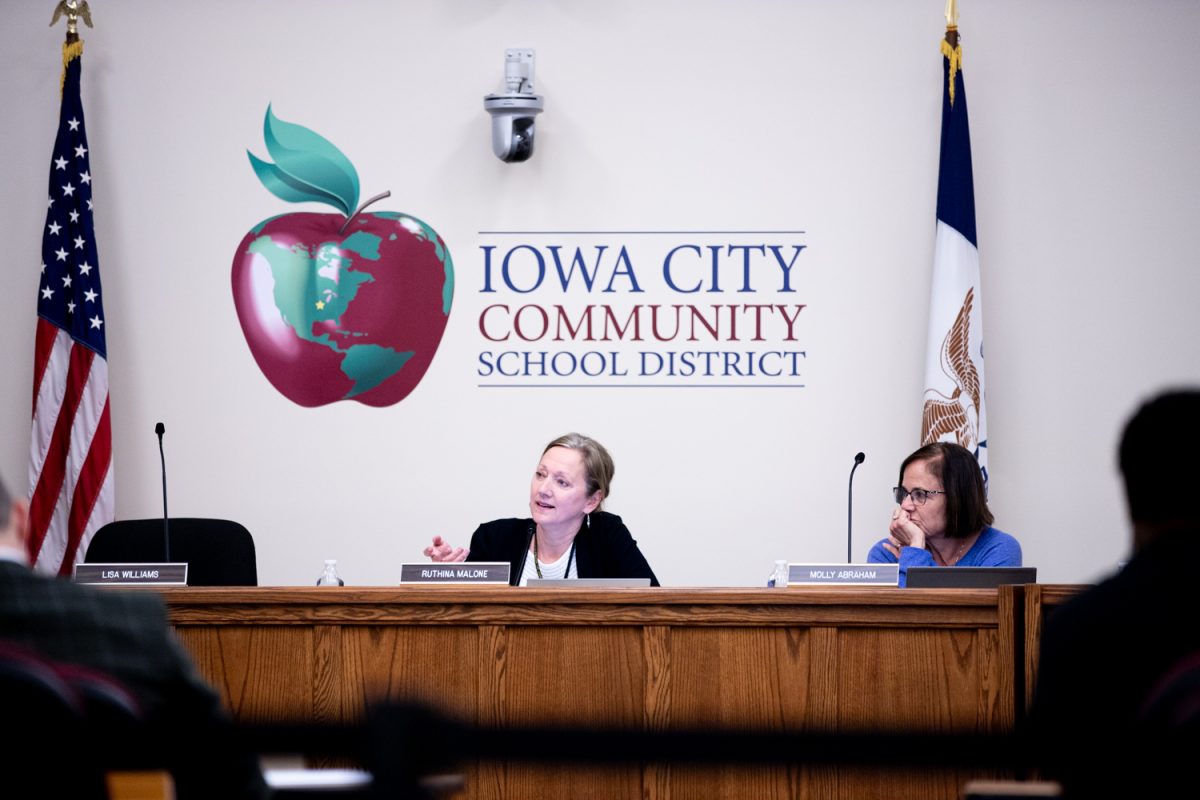The Iowa City Community School District is in the third year of five for its restorative justice program, which aims to address behaviors that might otherwise suspend or punish students.
Since its introduction to Iowa City schools during the 2021-22 school year, restorative justice coordinator Brad Kelly said students have found better ways to resolve conflict, which makes all the work he’s been doing worthwhile.
In Iowa City schools, Kelly is leading a five-year plan to incorporate restorative practices into every school, reworking how students are disciplined, and how they connect. Kelly has worked with several corporations and nonprofits with the singular goal of addressing people’s differences and rebuilding the community within whatever group he was serving at the time.
“We don’t have policies in place to address behaviors, and sometimes the behaviors do call for some type of suspension,” Kelly said. “We’re looking at stopping the harm from hurting.”
Students often act out because of an underlying issue they can’t cope with, he said. Restorative work not only makes sure the victim of harm is OK but recognizes that the offending student is most likely being harmed as well, and both students deserve support from their community.
Students will still always face consequences for negative behavior, Kelly added, but the concern is centered around how the kids can transition back to the classroom and rejoin the community without feeling ostracized or like they’re falling behind.
Critics of restorative justice say the process can detract from academic instruction because teachers often must spend more time working on the program than teaching. Another argument against the program is that it can force victims and survivors to share stories and talk to the people who harmed them.
But the Iowa City school board said that they are giving the program their support. School board President Ruthina Malone said if students are constantly being suspended, it will obviously set them behind in coursework and could lead to additional negative behaviors.
“Trying to invest time and help them with better-coping mechanisms is discipline happening to build trust in the community so our kids can be successful,” Malone said.
In year three of the five-year plan, Kelly and his team have gotten 71 percent of all Iowa City schools to implement restorative practices in some form. However, there are still some challenges the program has yet to overcome, including questions as to what exactly restorative work is and whether or not it’s an effective method of discipline.
“My job is to be able to say, ‘You have value, you have worth,’” Kelly said. “I’m willing to have conversations with you and sit in a space to disagree or be uncomfortable. I’m willing to be in a space to learn.”
Going forward, Malone said she would like to see aspects of restorative practice implemented into school board policies to continue the district’s progress in the area.
RELATED: Iowa City schools forms book review committee
“It’s not necessarily as black and white as saying a ‘restorative justice policy’, but I do think in the student segment of our policy and governance, it might refer to the framework of restorative justice,” she said.
Through his work, Kelly said he hopes the principles of his work stick with students as they move forward in their lives, adding that if the children continue to be receptive to the ideas and excited about them, they’ll be more likely to use them when they’re grown.
“If we can continue to teach the young people that they all have a place and community, they’ll come back and say, ‘This is a new foundation for how we want to do school,’” he said.



